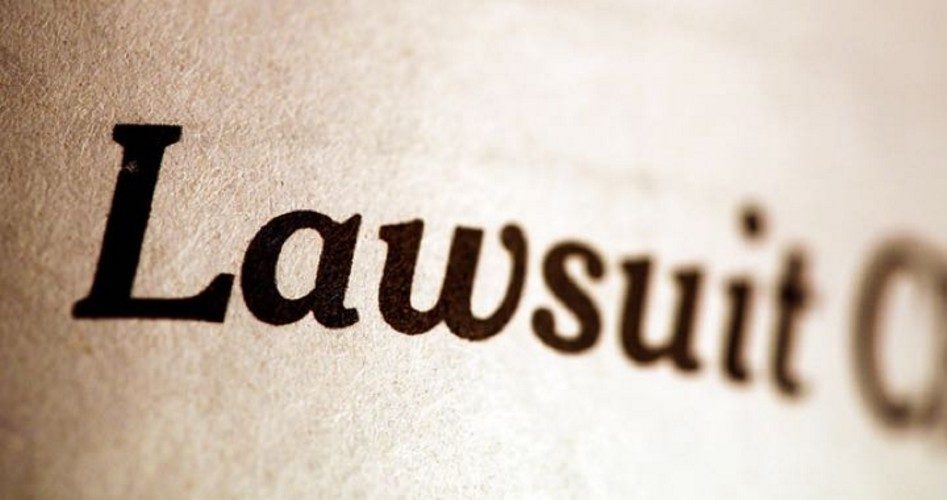
Five of the world’s largest tech companies are facing legal challenges to their alleged censorship of conservative viewpoints on their various platforms.
Apple, Google, Facebook, Instagram, and Twitter are being sued by Larry Klayman, the founder of Judicial Watch and Freedom Watch, for their apparent agenda to “quash and/or limit advocacy by conservative and pro-Trump public interest groups, advocates and others to further the leftist anti-conservative agendas.”
The complaint filed by Klayman in the U.S. District Court for the District of Columbia seeks nearly $1 billion in damages.
Klayman asserts — on behalf of Freedom Watch and “likely hundreds or more” conservative organizations whose content has been banned or embargoed by the tech giants — in his lawsuit that:
Acting in concert with traditional media outlets, including but not limited to Cable News Network (“CNN”), MSNBC, the New York Times and the Washington Post — all of whom are owned and/or managed by persons with a leftist political ideology, Defendants have intentionally and willfully suppressed politically conservative content in order to take down President Donald Trump and his administration with the intent and purpose to have installed leftist government in the nation’s capital and the 50 states.
The goal of the censorship of right-wing media content, according to Klayman, is to “to re-craft the nation into their leftist design.”
There is unquestionably merit to Klayman’s assertions.
For its part, Apple has removed several episodes of the Infowars podcast. Beyond that action, which is certainly blatant censorship, Apple’s anti-conservative bias is less obvious than that of some of its Silicon Valley neighbors.
Apple explained in a press release that it removed the Infowars podcast because of Alex Jones’s remarks about Muslims, immigrants, and the so-called LGBT lifestyle. Apple said that it considers such comments to be violative of its terms of service, which prohibit “hate speech.”
Perhaps the most obvious obstruction of the flow of conservative content is committed by Twitter. Twitter cleverly cloaks its bias using practices such as “shadow-banning,” a tactic that prevents content from being shared with users in a way that will not make it apparent to content creators that their information is being kept from their followers.
Remarkably, Twitter doesn’t deny its political preference.
During an interview on CNN (one of the defendants named in the Freedom Watch suit), Twitter CEO Jack Dorsey admitted that his company is “more left-leaning,” but added that he thinks “it’s important to articulate our own bias and to share it with people so that people understand us. But we need to remove our bias from how we act and our policies and our enforcement.”
It is not apparent that Dorsey has removed any bias, but he regularly removes right-wing content from his social-media mammoth with regularity.
Dorsey, in an interview with the Washington Post, outlined his plan for arranging content on Twitter. As quoted in the Post article, Dorsey is “rethinking core parts of Twitter to curb the spread of hate speech, harassment and false news. He also told The Post that he’s experimenting with new features that would allow people to see alternative viewpoints and reduce ‘echo chambers.’”
The test, then, of whether Twitter fulfills Dorsey’s promise to keep the company’s leftist bias from influencing information will be if the site sees the destruction of “echo chambers” filled with the sound of Progressive, LGBT, and other leftist shouts, or if only right-wing reverb is squelched.
While there is no doubt that these social-media mammoths have pursued policies that marginalize or completely remove content created by conservatives and that that agenda, particularly when it is driven by algorithms designed to make the censorship nearly invisible to all but the most tech savvy users, will lead many people to hear only one side of important social and political issues, which in turn will convince those people that the side whose opinion is promoted prominently is the dominant or “normal” view, they have not committed First Amendment violations.
Such censorship, such manipulations are cowardly and reveal the companies’ understanding that their leftist principles are weak and incapable of withstanding opposing points of view. The bias and the acts taken in support of that bias are not, however, a violation of the First Amendment, as Klayman avers in his lawsuit.
As constitutionalists know, the First Amendment is intended to prevent Congress from abridging free speech and has no application to the actions of corporations. In fact, the Citizens United case, that conservatives by and large support, explicitly protects political advocacy and funding by businesses.
Truthfully, lawsuits such as that filed by Larry Klayman will be unsuccessful if the aim is to force tech companies to treat conservative content the same as information produced by progressives. If the aim is simply to alert conservatives to the prejudice and thus drive them away from the sites and companies that are guilty of the marginalization of right-wing opinions and the manipulation of the content’s appearance, then the suit may take significant steps toward a truly free press.



